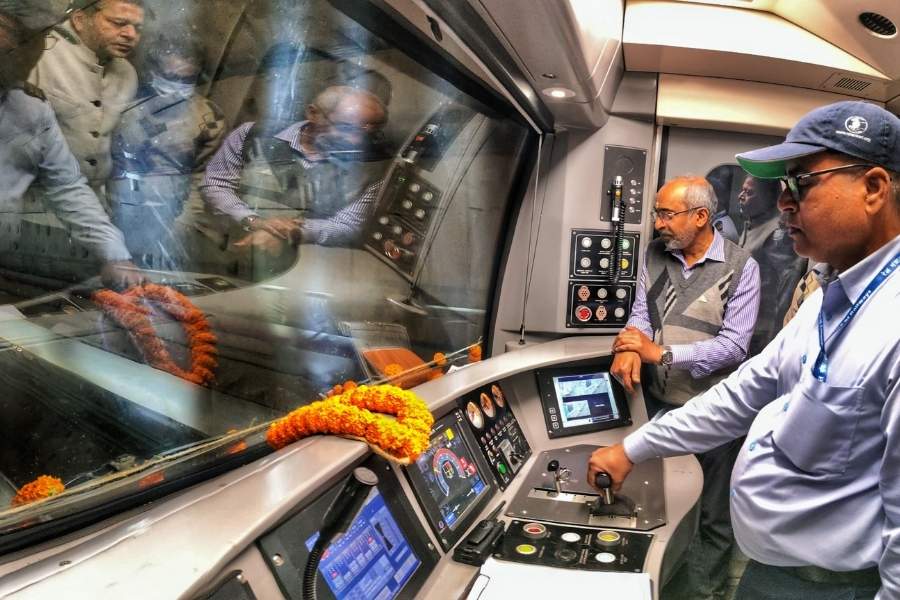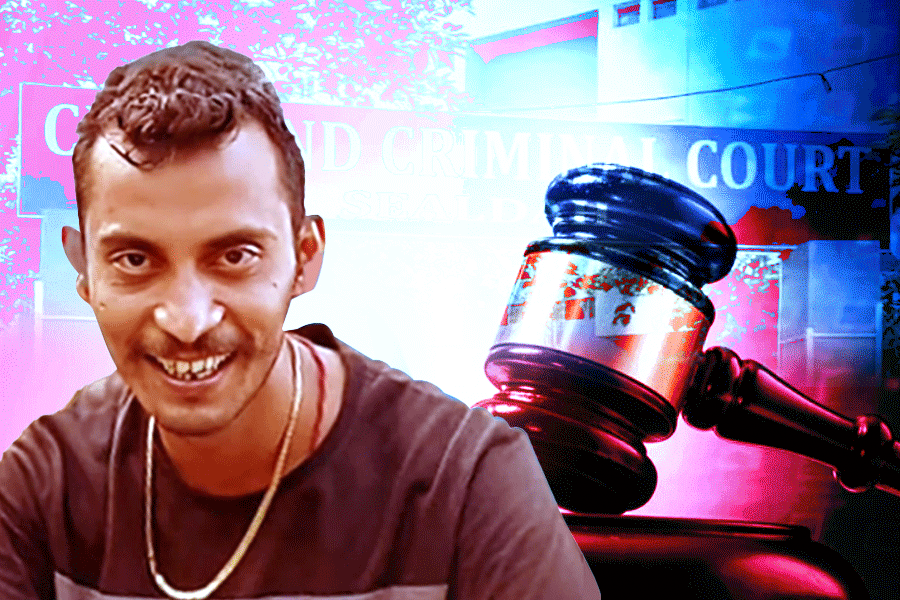 Wednesday, 22 January 2025
Wednesday, 22 January 2025
 Wednesday, 22 January 2025
Wednesday, 22 January 2025
Omar Abdullah’s comeback as chief minister of the Union Territory of Jammu & Kashmir in the historic Assembly polls held five years after the abrogation of Article 370 is the stuff of political history, given that he was defeated in the Lok Sabha elections this year.
Prime Minister Narendra Modi, whose party has time and again labelled Abdullah a separatist, was one of the first to felicitate the National Conference leader after being sworn-in. “Wishing him the very best in his efforts to serve the people. The Centre will work closely with him and his team for J&K's progress,” Modi wrote on his X (formerly Twitter) handle.
Omar Abdullah’s return as chief minister is a good time to look back at his detention of 232 days.
In his interview with Pradeep Chhibber and Harsh Shah for their book, India Tomorrow: Conversations with the Next Generation of Political Leaders (2020), Abdullah had opened up about his detention.
He was determined to not let the BJP “get me down,” Abdullah had said.
The ‘absolute shock’ of August 2019
Abdulla had never imagined that the BJP would dilute Article 370, abrogate 35A and cut up the state into two Union Territories.
He described his immediate reaction to the revocation of the special status of Jammu and Kashmir as “absolute shock”.
Because when Abdullah and his party MPs had a meeting with Prime Minister Modi “on the 2nd or 3rd of August” of 2019, they had been “reassured that it wouldn’t be as serious and as damaging as the rumours had led us to believe”.
Abdullah added: “But from midnight of the night of the 4th of August, when reports started coming in of people being detained, arrested, some removed from their homes and political leaders being placed under house arrest, we knew that we had to expect something pretty serious.”
Weeks turned into 232 days
August 5, 2019, “passed in a haze” while he was “still locked up at home”.
In the evening, a staffer at the Srinagar district magistrate’s office, accompanied by a police officer, turned up with a detention order for Abdullah.
“I was very matter of fact about it,” he recalled. “I said, ‘That’s it then. Give me a little bit of time, I’ll shower, pack some clothes, and I’ll go with you’.”
He had initially thought that his detention would last for about a week or two. “Those two weeks stretched to 232 days before I got out.”
Determined to not ‘let them mess with my head’
Weeks before he was detained, Abdullah had a surgery on his hand, for which he needed an MRI. During the MRI, he realised he was “borderline claustrophobic”. “...it’s one of the worst experiences when you get sucked into that tube and it starts making noises,” he described.
He felt the same on the first few days of his detention. With no contact with the outside world, Abdullah felt “trapped”.
But he was determined to not “let them mess with my head”.
Abdullah felt he needed a routine to cope with his detention. So, he set fixed times for breakfast, lunch, dinner, and his medical check-ups.
‘Went through the entire spectrum of emotions’
“As a person in detention, I had to have a medical check-up with blood pressure and other tests taken every day,” said Abdullah.
Gradually, he started working out and reading.This routine prevented Abdullah from getting “aimless” and helped him endure his detention.
“I went through the entire spectrum of emotions from anger to frustration to resentment to bitterness to sort of resigning myself to what had happened, and then going back to being angry about being detained and frustrated about it,” said Abdullah.
Detained for being a popular leader
Omar Abdullah felt there was no justification for his detention.
“One of the clauses in my detention order talks about how I was able to influence people to come out and vote in large numbers in spite of a boycott call and a militant threat,” he recounted.
Abdullah never thought he could be detained for urging people to exercise their franchise.
“Tomorrow, how am I going to convince people to come out and vote? What am I going to tell them?” wondered Abdullah, whose party has bagged 42 seats in the latest Jammu and Kashmir Assembly polls.
“...the overwhelming feeling that I have come out of detention with is a whole lot of bitterness and anger…,” the National Conference leader said.
In the interview, Abdullah also said that “constitutionally,” he would “try and fight to retrieve what we have lost on the 5th of August.”







